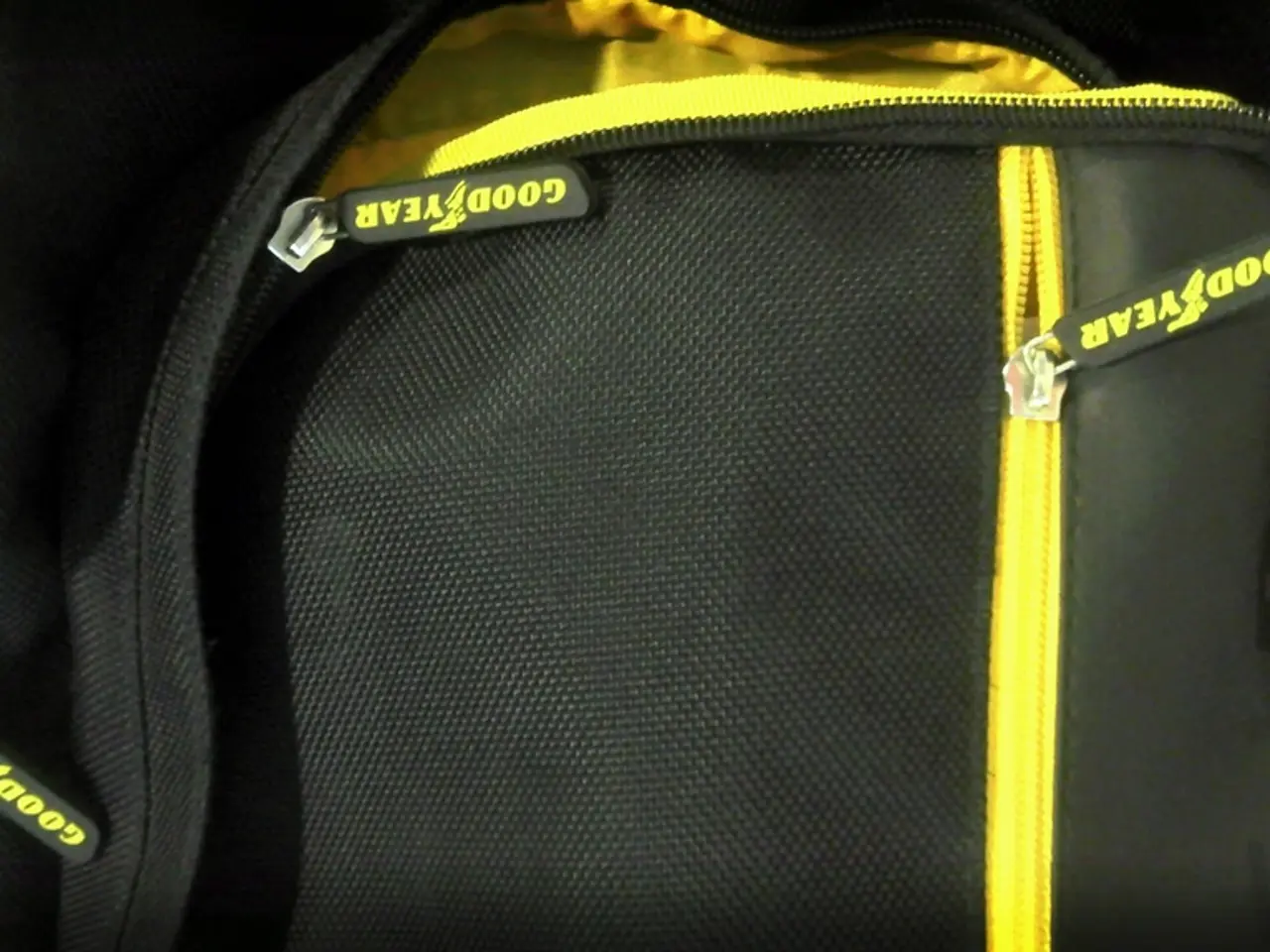"Mark Cuban Expresses Worry Regarding Unassisted 33 Million Small Businesses Faced by Tariff Implications"
Spinning the Facts: Mark Cuban's Flaming Mindbomb on Small Businesses in Turmoil
Billionaire entrepreneur Mark Cuban doesn't hold back in his blunt criticism of President Trump's administration. In a scathing post on BlueSky, Cuban lashed out at the White House for failing to offer assistance to America's 33 million small businesses reeling under the weight of escalating tariffs on Chinese imports.
"Not a peep from anyone in the administration," Cuban raged. "So many of these businesses bought from China and haven't got alternatives. They didn't have the dough to pre-order inventory, so they're stuck with skyrocketing costs, and no way to pass it on to customers."
Invest While It's Still Hot: 5.80% Guaranteed Fixed Annual ReturnsJoin the Active Investor community and uncover Wall Street’s hidden gems.
Cuban's intense words echo the struggles endured by small businesses grappling with shifting trade policies that have drastically increased operational costs. It's become crystal clear that a break from the pain is essential to keeping the American economy from teetering on the brink of a recession.
Uncle Sam, Where's the Help?
In a world where Jeff Bezos can bend the ear of the President, local businesses are left high and dry. As small companies sweat to keep up with an ever-changing trade landscape, it seems they've been forgotten, left to fend for themselves.
Amid tense economic demands, finding new suppliers, revamping supply chains, or onshoring production — luxuries enjoyed by corporations — remains unattainable for most little guys. Time, cash, and scale either don't exist, or are scarce, leaving them drowning in higher prices and longer lead times.
One thing's for sure, many small businesses don't have the dough to weather this storm.
The Loan Sharks Aren't Helping
Things are only getting tougher with an unforgiving credit environment. Inflation, now cooling, has kept interest rates high, making it difficult for small businesses to secure affordable financing. Lines of credit are shrinking, loan applications are getting denied, and alternative financing options come with terms that would make a mafia lawyer wince.
So, here's the double whammy: Business owners need cash to buy inventory before costs escalate further. But the cost of capital itself is a killer. For many, it's a no-win situation.
Politics in a Nutcracker: Small Biz Caught in the Crossfire
Cuban doesn't just raise economic alarms; he flings a political hand grenade. His accusations that nobody in the administration has come forward to defend small business owners strikes at the heart of growing bipartisan discontent with the government's lackluster efforts to address the crisis.
While large corporations and industrial lobbyists have scored deals, small businesses have largely been ignored, surviving on little more than hollow promises. It seems the government has yet to announce any relief programs, financial assistance, or tax breaks specifically designed to help businesses suffering from the new tariffs.
With the specter of closures looming, particularly in retail, manufacturing, and e-commerce sectors, many worry that this could trigger a wave of closures across the nation.
Ripples Reaching Main Street
Small businesses represent the backbone of the American economy, employing nearly half the private workforce. The consequences of their decline trickle down to the local economy and have far-reaching effects, including reduced consumer spending, job losses, and dwindling tax revenues.
Finding a solution isn't straightforward, but there are ideas on the table. For example:
- Tariff reliefs for small importers under a certain revenue threshold
- Small Business Administration (SBA)-backed short-term bridging loans with low interest rates and delayed repayment terms
- Expanded Trade Adjustment Assistance (TAA) to help businesses reorganize their supply chains
- Inventory purchasing grants or tax incentives to ease the burden of sudden cost hikes
- National procurement assistance to help businesses negotiate better deals through group buying
- Grants, tax credits, or other incentives for companies that onshore their supply chains into the US
As of now, none of these ideas has been formally adopted or proposed by the current administration. Mark Cuban's influence as a billionaire investor and champion for entrepreneurs adds weight to the concerns small businesses have voiced for weeks. His willingness to publicly call out the government's inaction may light a fire under policymakers and spark meaningful change.
One thing's certain: The longer the government waits, the more permanent the damage could be.
On the date of publication, Caleb Naysmith had no financial interest in any of the companies mentioned in this article.
- Despite billionaire Jeff Bezos' influence in political circles, local businesses struggle to adapt to changing trade policies, left to navigate higher costs and longer lead times on their own.
- In this difficult economic climate, securing affordable financing has become a challenge for small businesses, as interest rates remain high and lines of credit shrink.
- Mark Cuban's critical stance towards the administration's lack of support for small businesses reflects growing bipartisan discontent, as many believe the government has neglected these vital businesses surviving on hollow promises.
- The potential decline of small businesses, which account for nearly half of the private workforce, could have far-reaching consequences, including reduced consumer spending, job losses, and dwindling tax revenues,crippling the American economy.




